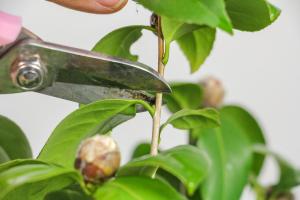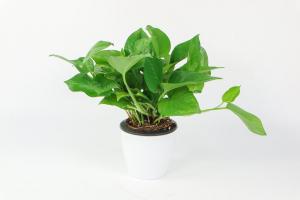Introduction
Water pollution is a major problem that affects the entire planet. It is caused by human activities such as industrial processes, agriculture, and transportation. These activities release various chemicals and pollutants into the water that can cause harm to the environment. One of the major impacts of water pollution is its effect on plants and animals. In this article, we will explore how water pollution affects plants and animals and what can be done to mitigate its effects.
How Water Pollution Affects Plants
Water pollution can have various negative impacts on plants. Firstly, it can lead to a decrease in photosynthesis, which is essential for the growth and survival of plants. Polluted water can contain chemicals such as heavy metals that can build up in plants and ultimately affect their ability to photosynthesize. Additionally, water pollution can cause soil erosion and the loss of nutrients, which can also negatively affect plant growth. Agricultural activities, such as the use of pesticides and herbicides, can also contribute to water pollution and harm plants.
How Water Pollution Affects Animals
Water pollution can cause significant harm to animals that depend on water sources for survival. The most common effect on animals is the loss of habitat due to polluted water. This is particularly true for aquatic animals such as fish, which can die due to the presence of pollutants in the water. Animals can also absorb toxic chemicals from polluted water, which can have negative effects on their health. Additionally, water pollution can lead to the buildup of harmful bacteria, which can cause diseases in animals and even humans that consume them.
Impact on the Ecosystem
The impact of water pollution on the ecosystem is significant. It can result in the loss of biodiversity and harm the balance of the ecosystem. For example, if a particular species of fish dies due to water pollution, it can have a ripple effect throughout the food chain. This can lead to the decline of other species that depend on that fish for food, ultimately affecting the entire ecosystem. In addition, water pollution can lead to the decline of vegetation and reduce the amount of oxygen in the water, which can harm aquatic plants and animals.
Solutions
There are various solutions that can be implemented to mitigate the effects of water pollution on plants and animals. Firstly, we need to reduce the amount of pollution that is released into the water. This can be achieved by regulating industrial processes, reducing the use of pesticides and herbicides, and properly disposing of hazardous waste. Additionally, we can implement measures to clean up polluted water and restore damaged ecosystems. This can include using natural methods such as wetlands, as well as employing advanced technologies to remove pollutants from the water.
Conclusion
Water pollution is a serious problem that affects plants and animals across the planet. Its negative impacts are far-reaching and can have lasting effects on the ecosystem. However, by implementing the right solutions and taking steps to reduce pollution, we can protect the environment and ensure that plants and animals are able to thrive. It is our responsibility to take action and protect our planet for future generations.

 how many times do yo...
how many times do yo... how many planted tre...
how many planted tre... how many pine trees ...
how many pine trees ... how many pecan trees...
how many pecan trees... how many plants comp...
how many plants comp... how many plants can ...
how many plants can ... how many plants and ...
how many plants and ... how many pepper plan...
how many pepper plan...






























